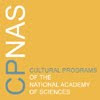From:Vladimir Mironov
Date: Sun, 11 Mar 2007 18:26:25 -0500
Please, do not worry too much about bioprinted organs functionality. FDA and other state regulatory agencies will not allow to implant bioprinted organs without proven safety and functionality. From another point, assumption that living cells or tissues have no function is just an assumption. There is no any scientific rationale behind this statement. I personally never saw such cells in my whole scientific life. The level of function, the level of maturation and the level of cell and tissue differentiation can be variable but we are working on this and we know how to do this. Moreover, we have clearly formulated, measurable, testable and I believe achievable specifications. Yes, the bioprinted organs and tissues must be maximally possible authentic to natural human organs from position of both form and function. But sometimes perfectionism is an enemy of good. I mean "good enough" is good enough. If it is safe and can help patients and have proven positive clinical effect - it is already o.k. Synthetic implants and prostheses from ceramic, metal or plastic or polymers are not perfect substitutes and not even close in functionality to natural human organs, but they improves and saves millions of human lives. Bioprinting will allows us to escape not very desirable scenario when human organs will be gradually replaced by mechanical parts and devices and humans will become looking more like robots then humans. From another point, xenotransplanation organ from transgenic animals also not the best option because every organ contain resident adult stem cells and they can migrate into the brain and potentially differentiate into nerve cells. Human with porcine neural cells in the brain may be very interesting biological experiment but "chimerization" of human is definitely not the most desirable goal. Bioprinting of human organ from autologous human cells will allow human not only be healthy but also will allow human to continue be human. It is definitely most desirable goal.
Vladimir Mironov-
On Sunday, March 11, 2007 1:17 PM -0400 Eugene Thacker
Hi all -Maybe we can suture together the questions about "epistemic things" thatIngeborg raises with Suzanne's questions concerning the sort ofgovernmetnality of those things?There's been alot of talk about epistemological issues andknowledge-production so far. Let me ask a dumb question - why exactly arewe assuming that epistemology supercedes ontology in the lab or thestudio? Maybe someone can clarify this for me - in Rheinberger I don'tget why the language of epistemology enters at all - it seems to be a"soft ontology," in which artifacts are not quite Heideggerian "things"but not simply abstract ideas either. I understand how the phrase"knowledge-production" enters the picture, largely because of howscientists and artists are situated within a larger political economy ofideas (which in both cases are privatized). So in an example likepopulation genomics - which we can really call biocolonialism - the issueisn't so much what count as knowledge, but how the concept of an "essenceof life" (a certain percentage of genetic variability and distribution)is linked to a political concept about foundational group identity (be itin terms of race, nation, or population - or all three).Among Suzanne's points (and by the way Suzanne, the RP images aregreat!), the notion that non-scientists are playing "catch up" isprovocative, not untrue, but also not completely accurate. On one level,yes, this does seem to be the case in academia, but only in certainfields. Depending on how cynical one is, one could say that the biotechindustry has inadvertently made possible a whole host of science studiesbooks. A more attenuated view would say that there is a kind ofintellectual "ressentiment" in the way that academics respond, reply to,and react to events that are already happening. It seems that this is oneproblems of thinking about how bioethics can be truly effective.Now, I find learning about new scientific fields and technical innovationas sexy as the next person. But I also feel that, at the end of the day,there are often basic and quite familiar concepts that emerge from them.For example: RP technologies, tissue engineering, and "organ printing."Great stuff - better than science fiction. But it raises a question aboutthe relation between "life" and "form." Is the key to engineering aneffective, functioning, histocompatible organ in the computer-based model(eidos) or is it in the actualization of that model 'in vitro' or 'invivo'? (These are arguably, the two most valued froms of zoe orbiological life in biotech.) We might assume that for tissue engineringthe proof lies in the actual biological organ - it functions or itdoesn't. But it is the former (the model, algorithm, eidos) that is, inpart, rendered valuable as a patent or as part of a technology. It seemsthat it is necessary to distinguish "form" from "life" while admittingtheir intermeshing (is this not the premise of Aristotle's De anima?)So let me also suggest that science and technology are at the same timeplaying "catch up" to issues raised by classical philosophy....?-Eugene
to post a response, click on the "comment" button below
to return to the main page, to go www.visualcultureandbioscience.org

No comments:
Post a Comment